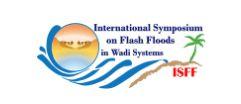GADRI activities will be streamlined to fully support the targets of the 2016 Science and Technology Roadmap to support the implementation of the , which calls for the need of focused action across sectors by States at local, national, regional and global levels. The four Priority Areas of the Sendai Framework are as follows:
- Priority 1: Understanding disaster risk
- Priority 2: Strengthening disaster risk governance to manage disaster risk
- Priority 3: Investing in disaster risk reduction for resilience
- Priority 4: Enhancing disaster preparedness for effective response and to "Build Back Better" in recovery, rehabilitation and reconstruction.[1]
[1] Sendai Framework for Disaster Risk Reduction 2015-2020



